한국응용과학기술학회 논문 검색
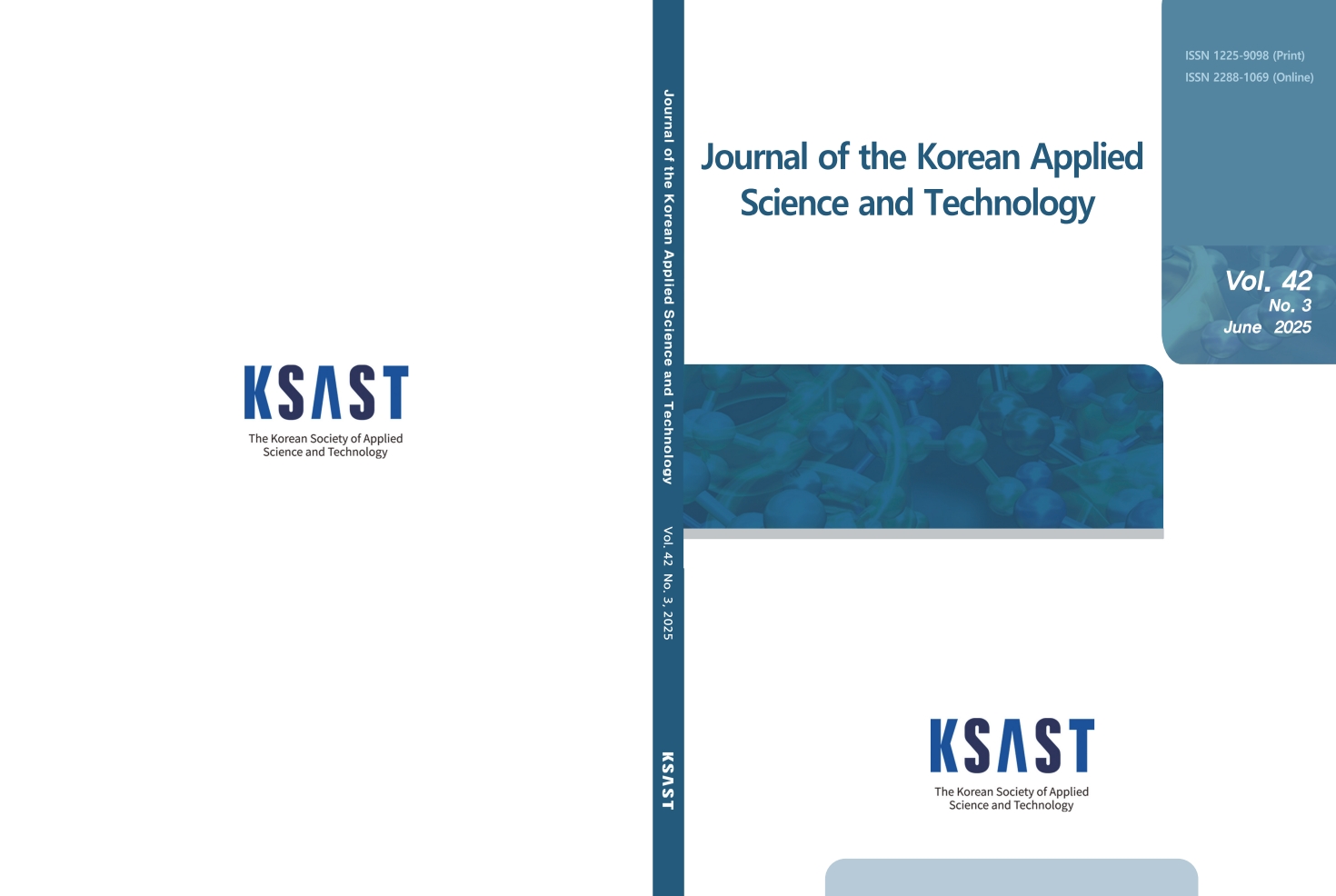
간호대학생의 간호전문직 자아개념, 임상실습 교육환경, 임상실습 시 경험한 무례함이 진로정체감에 미치는 영향
간행물 정보 : Vol. 42 No. 3, 2025년,
파일형식 : pdf

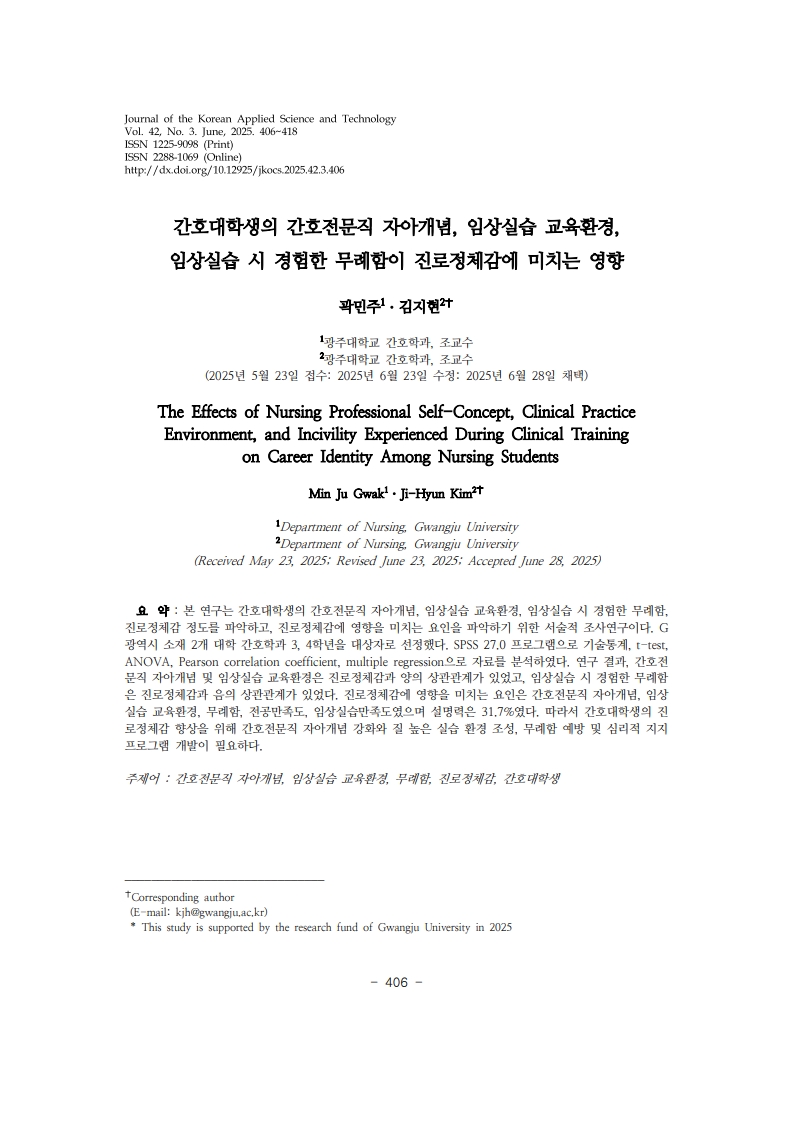
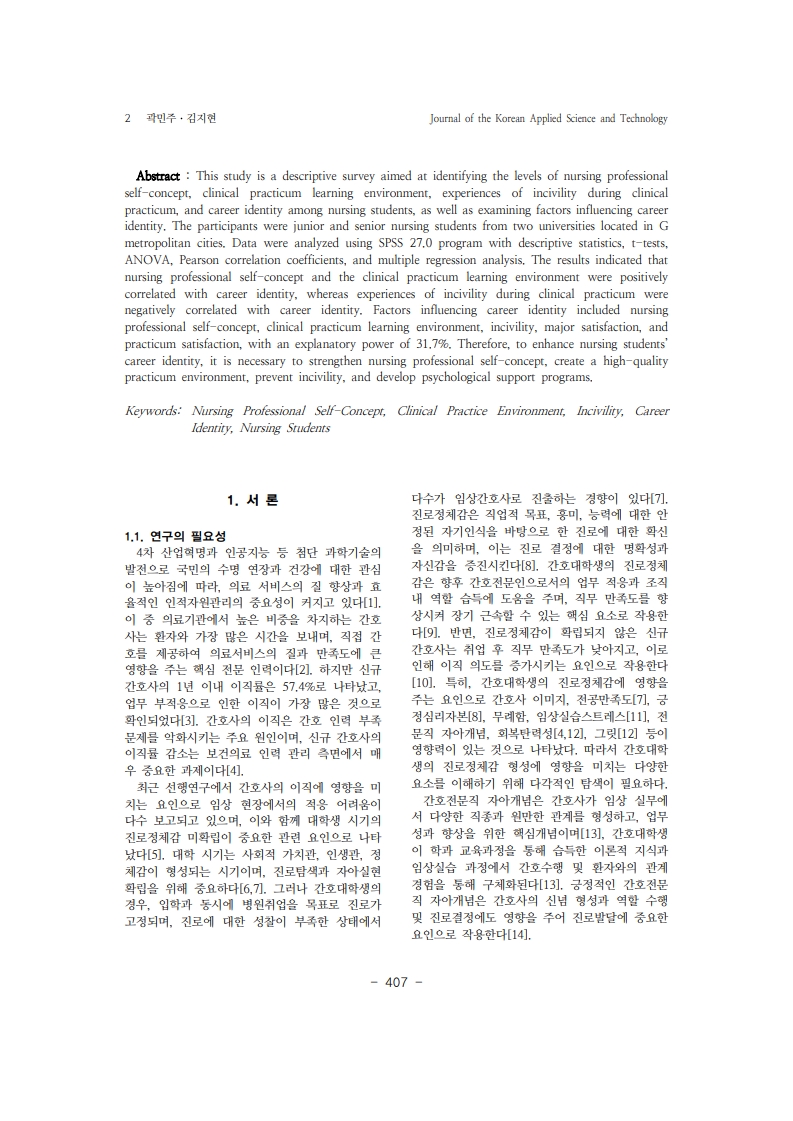
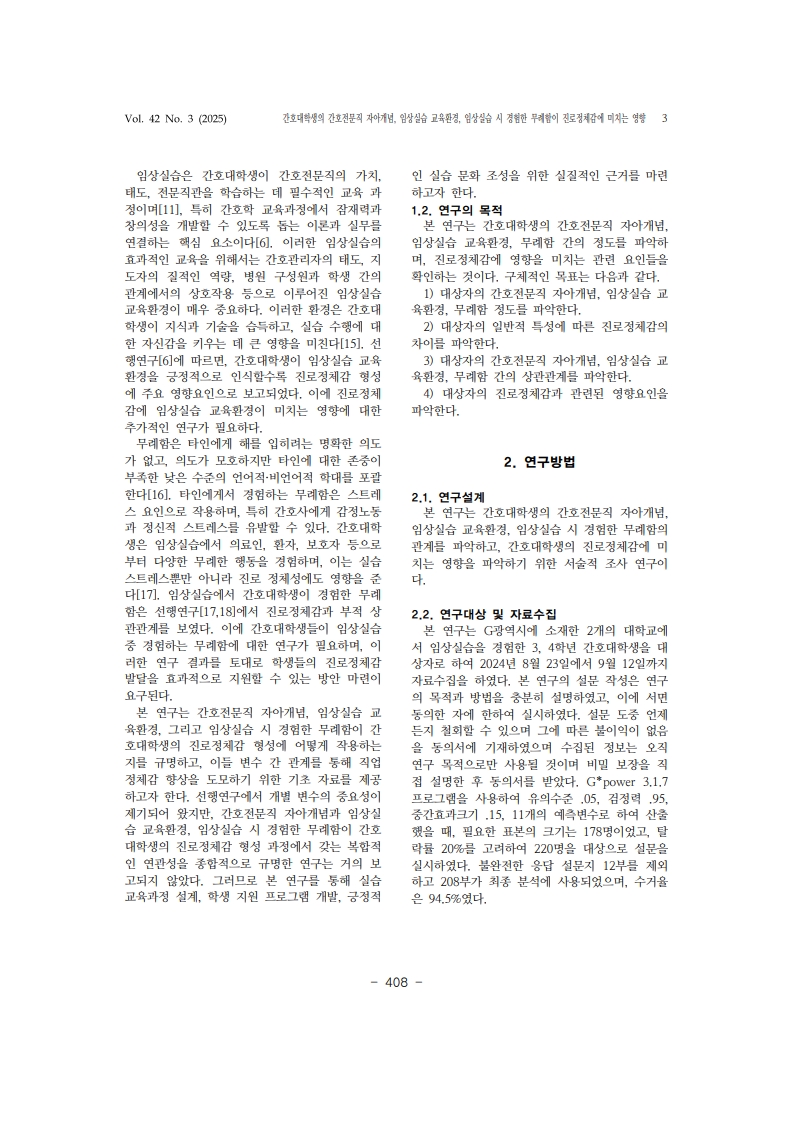
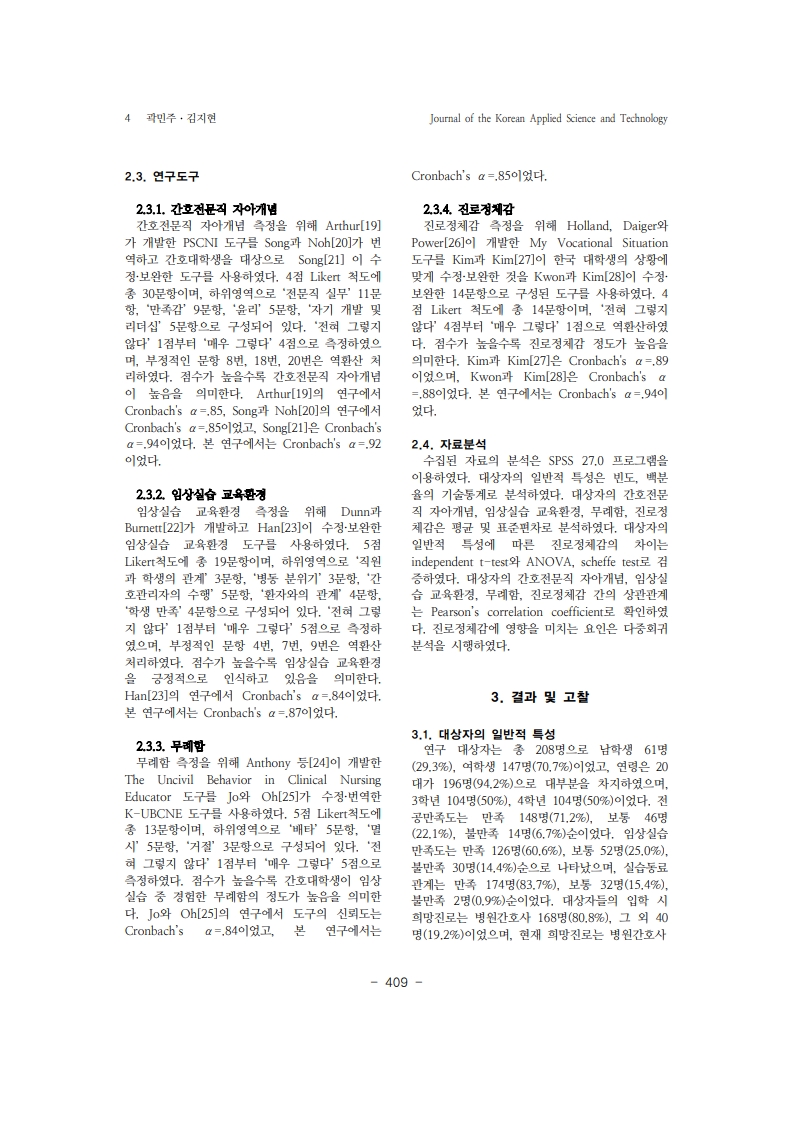
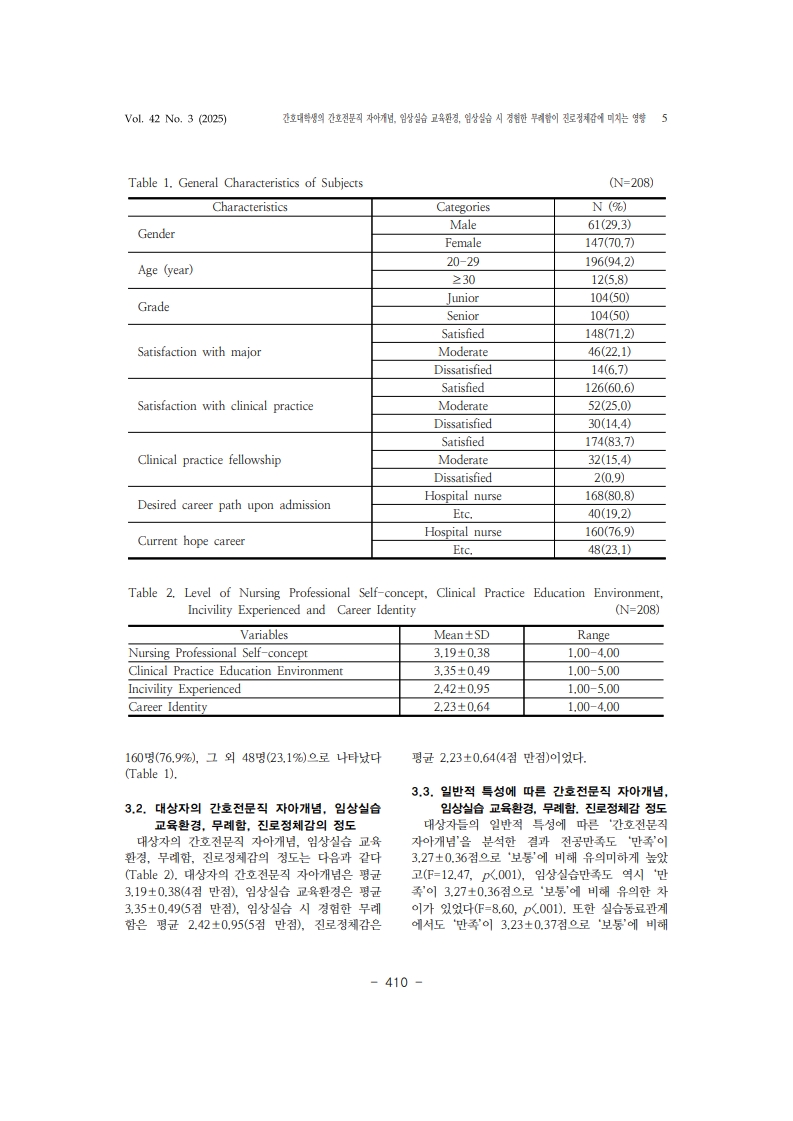
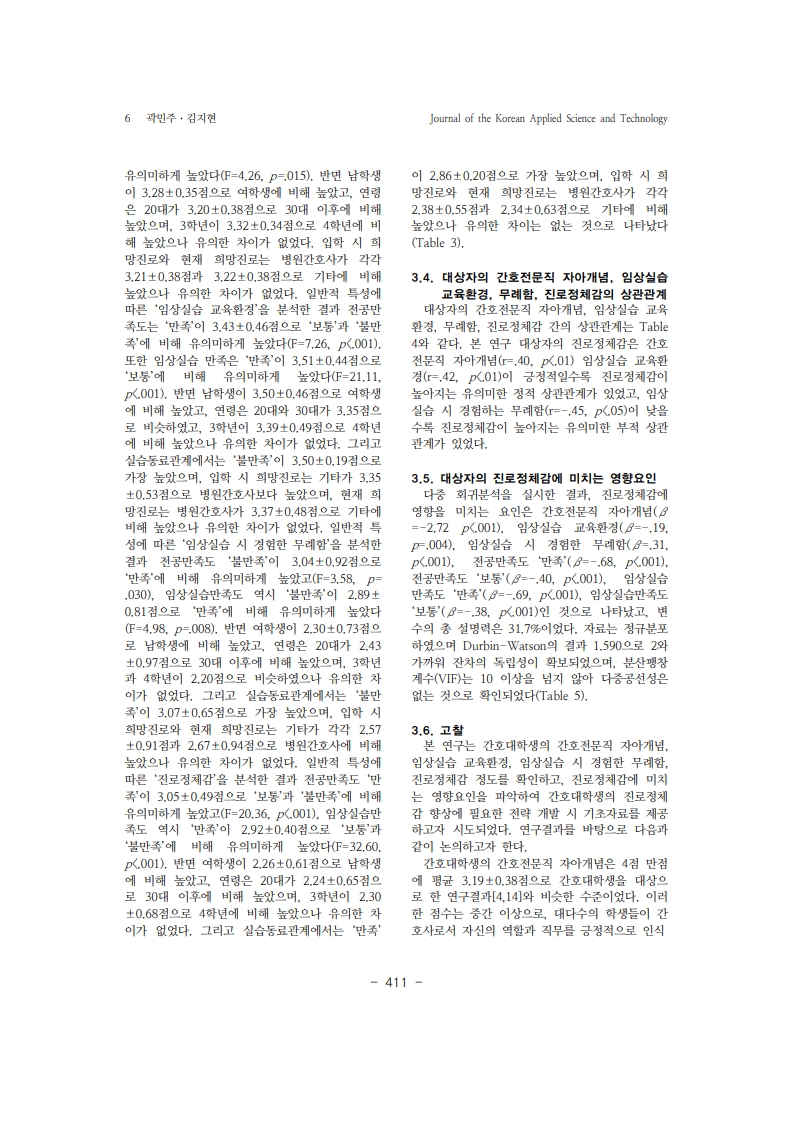
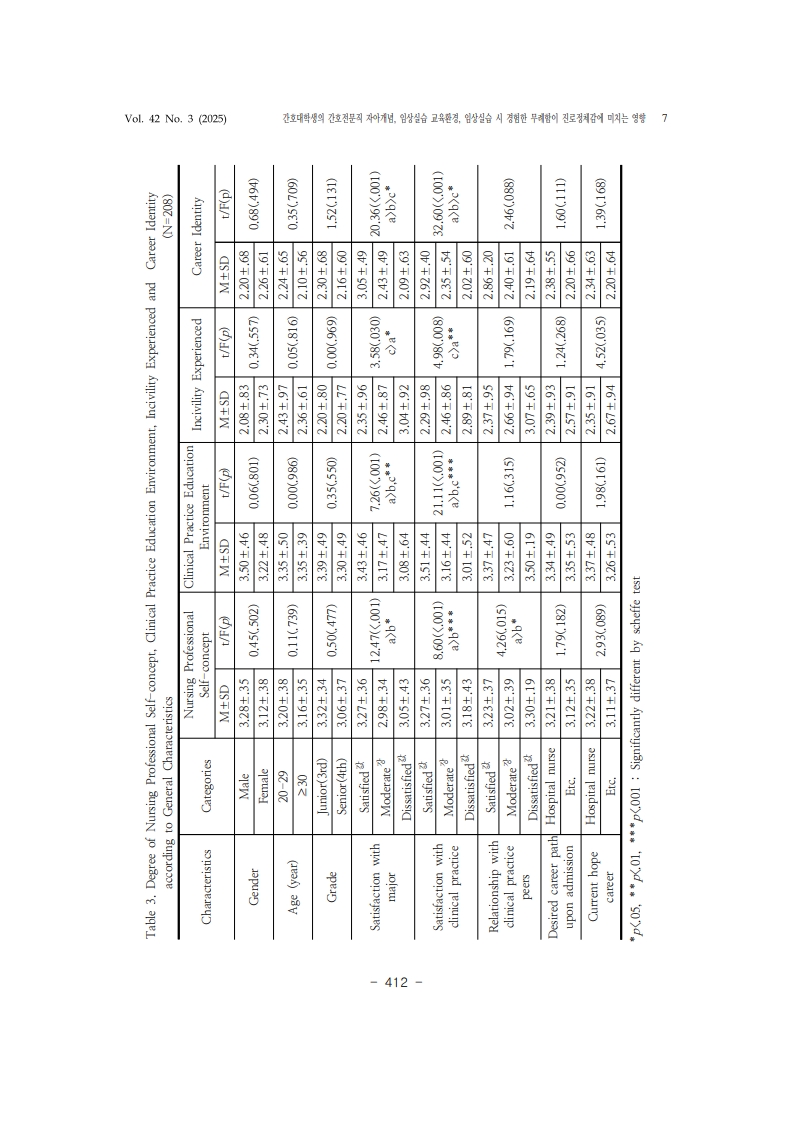
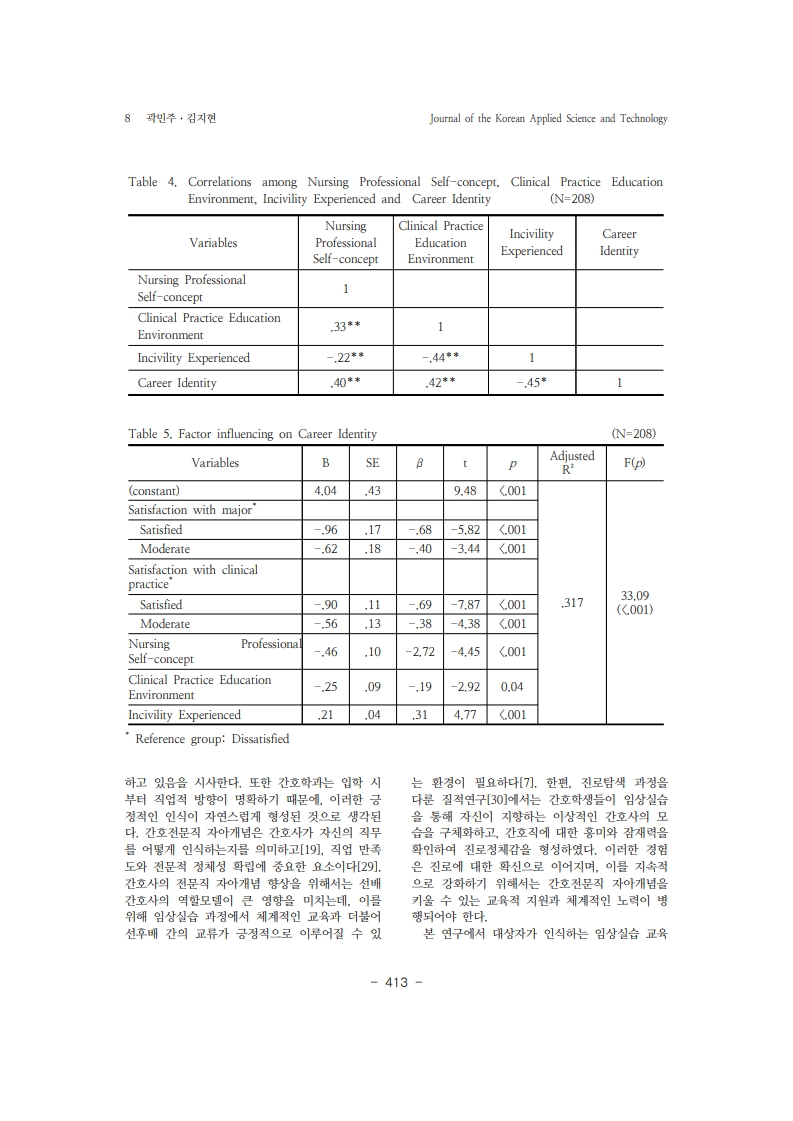
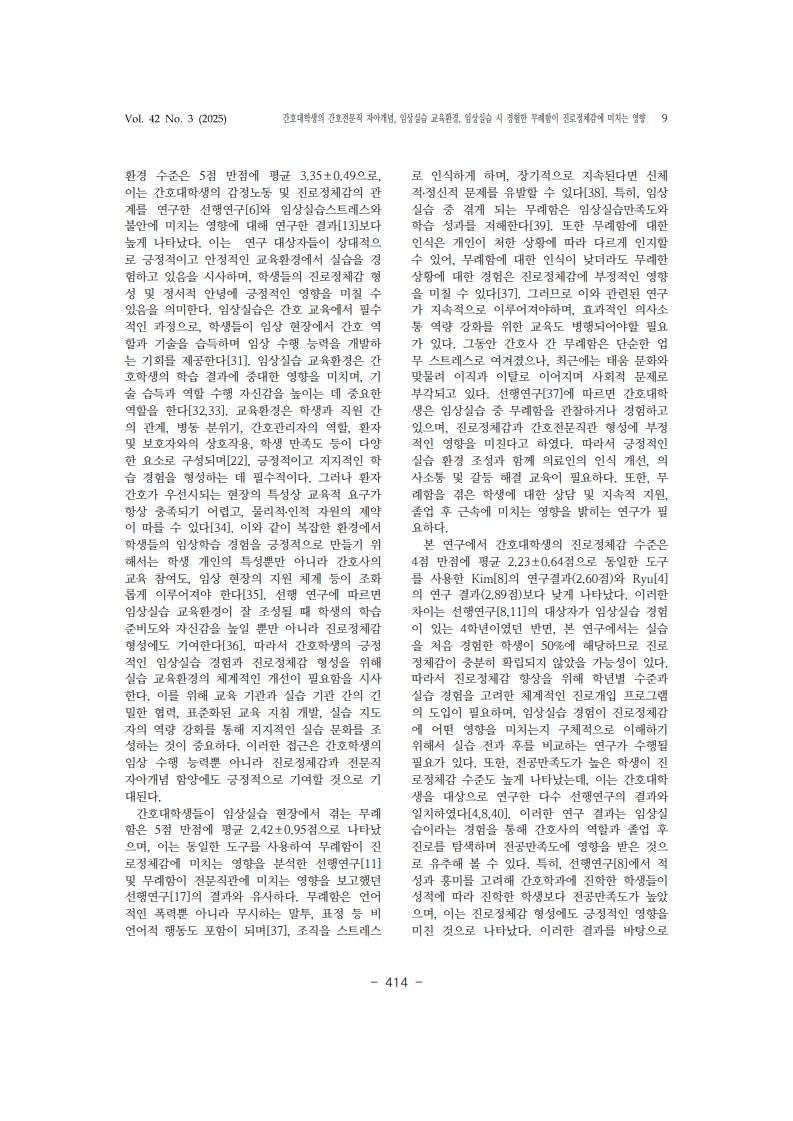
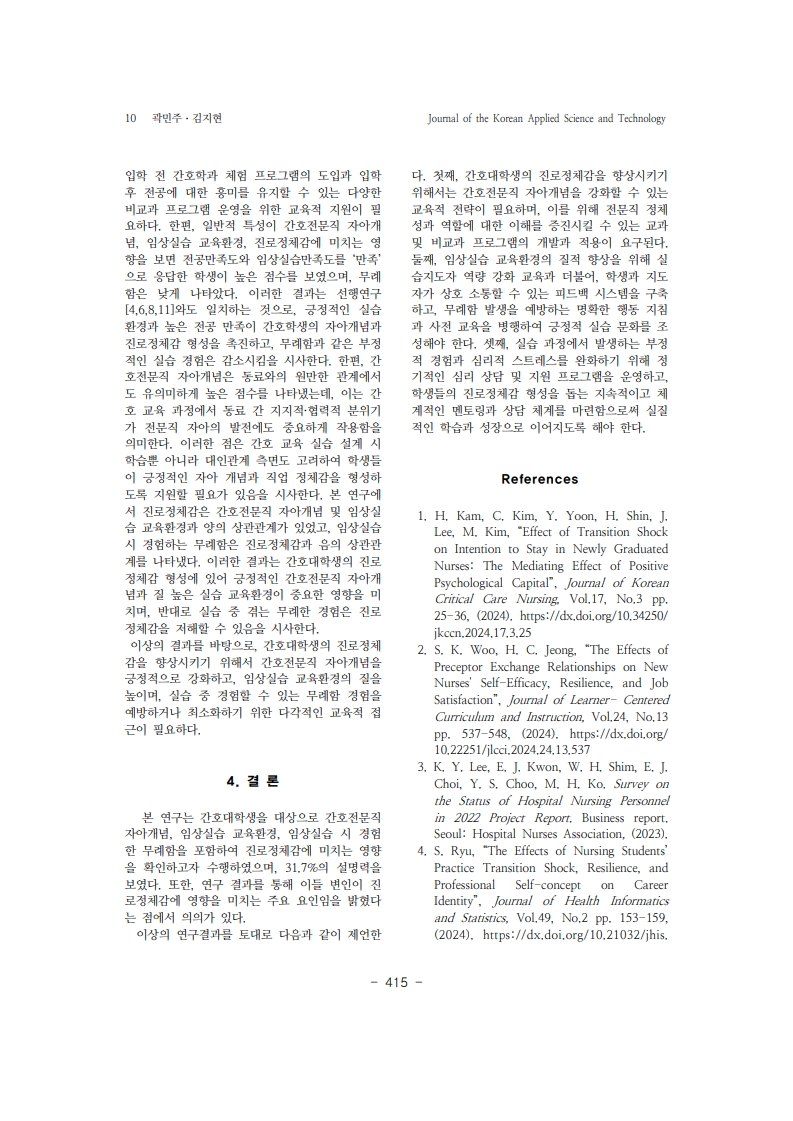
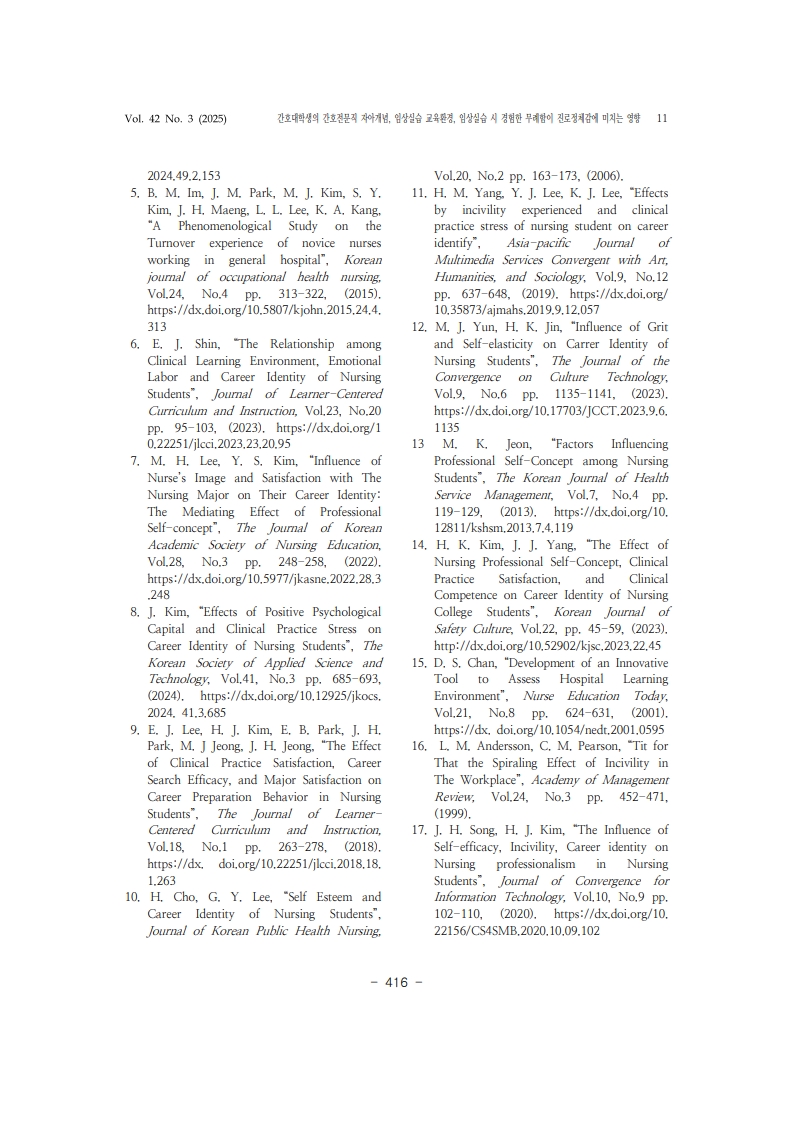
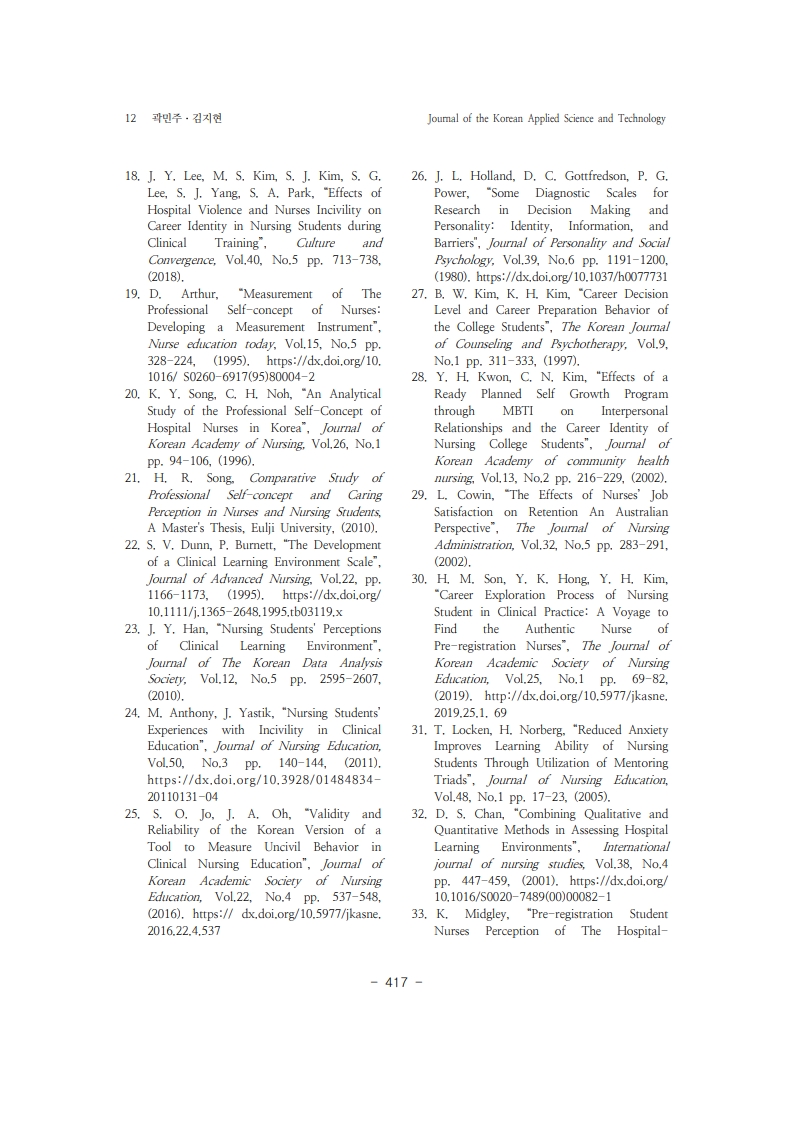
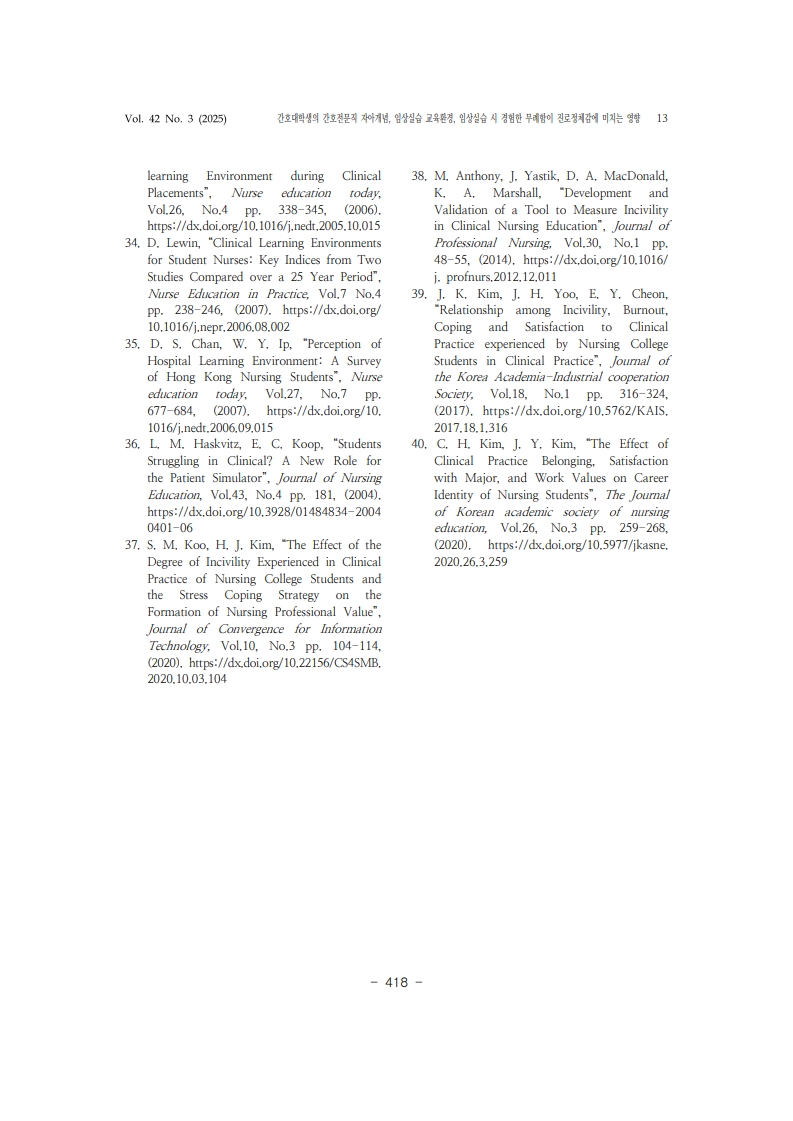
1. H. Kam, C. Kim, Y. Yoon, H. Shin, J. Lee, M. Kim, “Effect of Transition Shock on Intention to Stay in Newly Graduated Nurses: The Mediating Effect of Positive
Psychological Capital”, Journal of Korean Critical Care Nursing, Vol.17, No.3 pp.25-36, (2024). https://dx.doi.org/10.34250/jkccn.2024.17.3.25
2. S. K. Woo, H. C. Jeong, “The Effects of Preceptor Exchange Relationships on New Nurses' Self-Efficacy, Resilience, and Job
Satisfaction”, Journal of Learner- Centered Curriculum and Instruction, Vol.24, No.13 pp. 537-548, (2024). https://dx.doi.org/10.22251/jlcci.2024.24.13.537
3. K. Y. Lee, E. J. Kwon, W. H. Shim, E. J. Choi, Y. S. Choo, M. H. Ko. Survey on the Status of Hospital Nursing Personnel in 2022 Project Report. Business report.
Seoul: Hospital Nurses Association, (2023).
4. S. Ryu, “The Effects of Nursing Students’ Practice Transition Shock, Resilience, and Professional Self-concept on Career Identity”, Journal of Health Informatics
and Statistics, Vol.49, No.2 pp. 153-159, (2024).https://dx.doi.org/10.21032/jhis.2024.49.2.153
5. B. M. Im, J. M. Park, M. J. Kim, S. Y. Kim, J. H. Maeng, L. L. Lee, K. A. Kang,“A Phenomenological Study on the Turnover experience of novice nurses
working in general hospital”, Korean journal of occupational health nursing,Vol.24, No.4 pp. 313-322, (2015).https://dx.doi.org/10.5807/kjohn.2015.24.4.313
6. E. J. Shin, “The Relationship among Clinical Learning Environment, EmotionalLabor and Career Identity of Nursing Students”, Journal of Learner-Centered
Curriculum and Instruction, Vol.23, No.20 pp. 95-103, (2023).https://dx.doi.org/10.22251/jlcci.2023.23.20.95
7. M. H. Lee, Y. S. Kim, “Influence of Nurse’s Image and Satisfaction with TheNursing Major on Their Career Identity: The Mediating Effect of Professional
Self-concept”, The Journal of Korean Academic Society of Nursing Education, Vol.28, No.3 pp. 248-258, (2022).https://dx.doi.org/10.5977/jkasne.2022.28.3.248
8. J. Kim, “Effects of Positive Psychological Capital and Clinical Practice Stress on Career Identity of Nursing Students”, The Korean Society of Applied Science and Technology, Vol.41, No.3 pp. 685-693, (2024).https://dx.doi.org/10.12925/jkocs.2024.41.3.685
9. E. J. Lee, H. J. Kim, E. B. Park, J. H. Park, M. J Jeong, J. H. Jeong, “The Effectof Clinical Practice Satisfaction, Career Search Efficacy, and Major Satisfaction on Career Preparation Behavior in Nursing Students”, The Journal of LearnerCentered
Curriculum and Instruction, Vol.18, No.1 pp. 263-278, (2018).https://dx.doi.org/10.22251/jlcci.2018.18.1.263
10. H. Cho, G. Y. Lee, “Self Esteem and Career Identity of Nursing Students”,Journal of Korean Public Health Nursing,Vol.20, No.2 pp. 163-173, (2006).
11. H. M. Yang, Y. J. Lee, K. J. Lee, “Effects by incivility experienced and clinicalpractice stress of nursing student on career identify”, Asia-pacific Journal of
Multimedia Services Convergent with Art, Humanities, and Sociology, Vol.9, No.12pp. 637-648, (2019). https://dx.doi.org/10.35873/ajmahs.2019.9.12.057
12. M. J. Yun, H. K. Jin, “Influence of Grit and Self-elasticity on Carrer Identity ofNursing Students”, The Journal of the Convergence on Culture Technology, Vol.9, No.6 pp. 1135-1141, (2023). https://dx.doi.org/10.17703/JCCT.2023.9.6.1135
13 M. K. Jeon, “Factors Influencing Professional Self-Concept among NursingStudents”, The Korean Journal of Health Service Management, Vol.7, No.4 pp.
119-129, (2013). https://dx.doi.org/10.12811/kshsm.2013.7.4.119
14. H. K. Kim, J. J. Yang, “The Effect of Nursing Professional Self-Concept, ClinicalPractice Satisfaction, and Clinical Competence on Career Identity of Nursing
College Students”, Korean Journal of Safety Culture, Vol.22, pp. 45-59, (2023).http://dx.doi.org/10.52902/kjsc.2023.22.45
15. D. S. Chan, “Development of an InnovativeTool to Assess Hospital LearningEnvironment”, Nurse Education Today, Vol.21, No.8 pp. 624-631, (2001).
https://dx.doi.org/10.1054/nedt.2001.0595
16. L. M. Andersson, C. M. Pearson, “Tit for That the Spiraling Effect of Incivility in The Workplace”, Academy of Management Review, Vol.24, No.3 pp. 452-471,
(1999).
17. J. H. Song, H. J. Kim, “The Influence of Self-efficacy, Incivility, Career identity on Nursing professionalism in Nursing Students”, Journal of Convergence for
Information Technology, Vol.10, No.9 pp. 102-110, (2020).https://dx.doi.org/10.22156/CS4SMB.2020.10.09.102
18. J. Y. Lee, M. S. Kim, S. J. Kim, S. G. Lee, S. J. Yang, S. A. Park, “Effects ofHospital Violence and Nurses Incivility on Career Identity in Nursing Students during Clinical Training”, Culture and Convergence, Vol.40, No.5 pp. 713-738,(2018).
19. D. Arthur, “Measurement of The Professional Self-concept of Nurses:Developing a Measurement Instrument”, Nurse education today, Vol.15, No.5 pp.
328-224, (1995). https://dx.doi.org/10.1016/S0260-6917(95)80004-2
20. K. Y. Song, C. H. Noh, “An Analytical Study of the Professional Self-Concept of Hospital Nurses in Korea”, Journal of Korean Academy of Nursing, Vol.26, No.1
pp. 94-106, (1996).
21. H. R. Song, Comparative Study of Professional Self-concept and Caring Perception in Nurses and Nursing Students, A Master's Thesis, Eulji University, (2010).
22. S. V. Dunn, P. Burnett, “The Development of a Clinical Learning Environment Scale”, Journal of Advanced Nursing, Vol.22, pp. 1166-1173, (1995). https://dx.doi.org/10.1111/j.1365-2648.1995.tb03119.x
23. J. Y. Han, “Nursing Students' Perceptions of Clinical Learning Environment”, Journal of The Korean Data Analysis Society, Vol.12, No.5 pp. 2595-2607, (2010).
24. M. Anthony, J. Yastik, “Nursing Students’ Experiences with Incivility in ClinicalEducation”, Journal of Nursing Education,Vol.50, No.3 pp. 140-144, (2011).
https://dx.doi.org/10.3928/01484834-20110131-04
25. S. O. Jo, J. A. Oh, “Validity and Reliability of the Korean Version of a Tool to Measure Uncivil Behavior in Clinical Nursing Education”, Journal of
Korean Academic Society of Nursing Education, Vol.22, No.4 pp. 537-548,(2016). https://dx.doi.org/10.5977/jkasne.2016.22.4.537
26. J. L. Holland, D. C. Gottfredson, P. G. Power, “Some Diagnostic Scales forResearch in Decision Making and Personality: Identity, Information, and
Barriers", Journal of Personality and Social Psychology, Vol.39, No.6 pp. 1191-1200,(1980). https://dx.doi.org/10.1037/h0077731
27. B. W. Kim, K. H. Kim, “Career Decision Level and Career Preparation Behavior of the College Students”, The Korean Journal of Counseling and Psychotherapy, Vol.9, No.1 pp. 311-333, (1997).
28. Y. H. Kwon, C. N. Kim, “Effects of a Ready Planned Self Growth Programthrough MBTI on Interpersonal Relationships and the Career Identity of
Nursing College Students”, Journal of Korean Academy of community healthnursing, Vol.13, No.2 pp. 216-229, (2002).
29. L. Cowin, “The Effects of Nurses’ Job Satisfaction on Retention An AustralianPerspective”, The Journal of Nursing Administration, Vol.32, No.5 pp. 283-291,(2002).
30. H. M. Son, Y. K. Hong, Y. H. Kim, “Career Exploration Process of NursingStudent in Clinical Practice: A Voyage to Find the Authentic Nurse of
Pre-registration Nurses”, The Journal of Korean Academic Society of NursingEducation, Vol.25, No.1 pp. 69-82, (2019).
http://dx.doi.org/10.5977/jkasne.2019.25.1.69
31. T. Locken, H. Norberg, “Reduced Anxiety Improves Learning Ability of NursingStudents Through Utilization of Mentoring Triads”, Journal of Nursing Education, Vol.48, No.1 pp. 17-23, (2005).
32. D. S. Chan, “Combining Qualitative and Quantitative Methods in Assessing Hospital Learning Environments”, International journal of nursing studies, Vol.38, No.4 pp. 447-459, (2001). https://dx.doi.org/10.1016/S0020-7489(00)00082-1
33. K. Midgley, “Pre-registration Student Nurses Perception of The Hospital-learning Environment during Clinical Placements”, Nurse education today, Vol.26, No.4 pp. 338-345, (2006). https://dx.doi.org/10.1016/j.nedt.2005.10.015
34. D. Lewin, “Clinical Learning Environments for Student Nurses: Key Indices from Two Studies Compared over a 25 Year Period”, Nurse Education in Practice, Vol.7 No.4 pp. 238-246, (2007). https://dx.doi.org/10.1016/j.nepr.2006.08.002
35. D. S. Chan, W. Y. Ip, “Perception of Hospital Learning Environment: A Surveyof Hong Kong Nursing Students”, Nurse education today, Vol.27, No.7 pp.
677-684, (2007). https://dx.doi.org/10.1016/j.nedt.2006.09.015
36. L. M. Haskvitz, E. C. Koop, “Students Struggling in Clinical? A New Role forthe Patient Simulator”, Journal of Nursing Education, Vol.43, No.4 pp. 181, (2004).
https://dx.doi.org/10.3928/01484834-20040401-06
37. S. M. Koo, H. J. Kim, “The Effect of the Degree of Incivility Experienced in Clinical Practice of Nursing College Students and the Stress Coping Strategy on the
Formation of Nursing Professional Value”, Journal of Convergence for InformationTechnology, Vol.10, No.3 pp. 104-114, (2020).
https://dx.doi.org/10.22156/CS4SMB.2020.10.03.104
38. M. Anthony, J. Yastik, D. A. MacDonald, K. A. Marshall, “Development andValidation of a Tool to Measure Incivility in Clinical Nursing Education”, Journal of
Professional Nursing, Vol.30, No.1 pp. 48-55, (2014).https://dx.doi.org/10.1016/j.profnurs.2012.12.011
39. J. K. Kim, J. H. Yoo, E. Y. Cheon, “Relationship among Incivility, Burnout,Coping and Satisfaction to Clinical Practice experienced by Nursing College
Students in Clinical Practice”, Journal of the Korea Academia-Industrial cooperationSociety, Vol.18, No.1 pp. 316-324, (2017).
https://dx.doi.org/10.5762/KAIS.2017.18.1.316
40. C. H. Kim, J. Y. Kim, “The Effect of Clinical Practice Belonging, Satisfactionwith Major, and Work Values on Career Identity of Nursing Students”, The Journal
of Korean academic society of nursing education, Vol.26, No.3 pp. 259-268,(2020). https://dx.doi.org/10.5977/jkasne.2020.26.3.259
